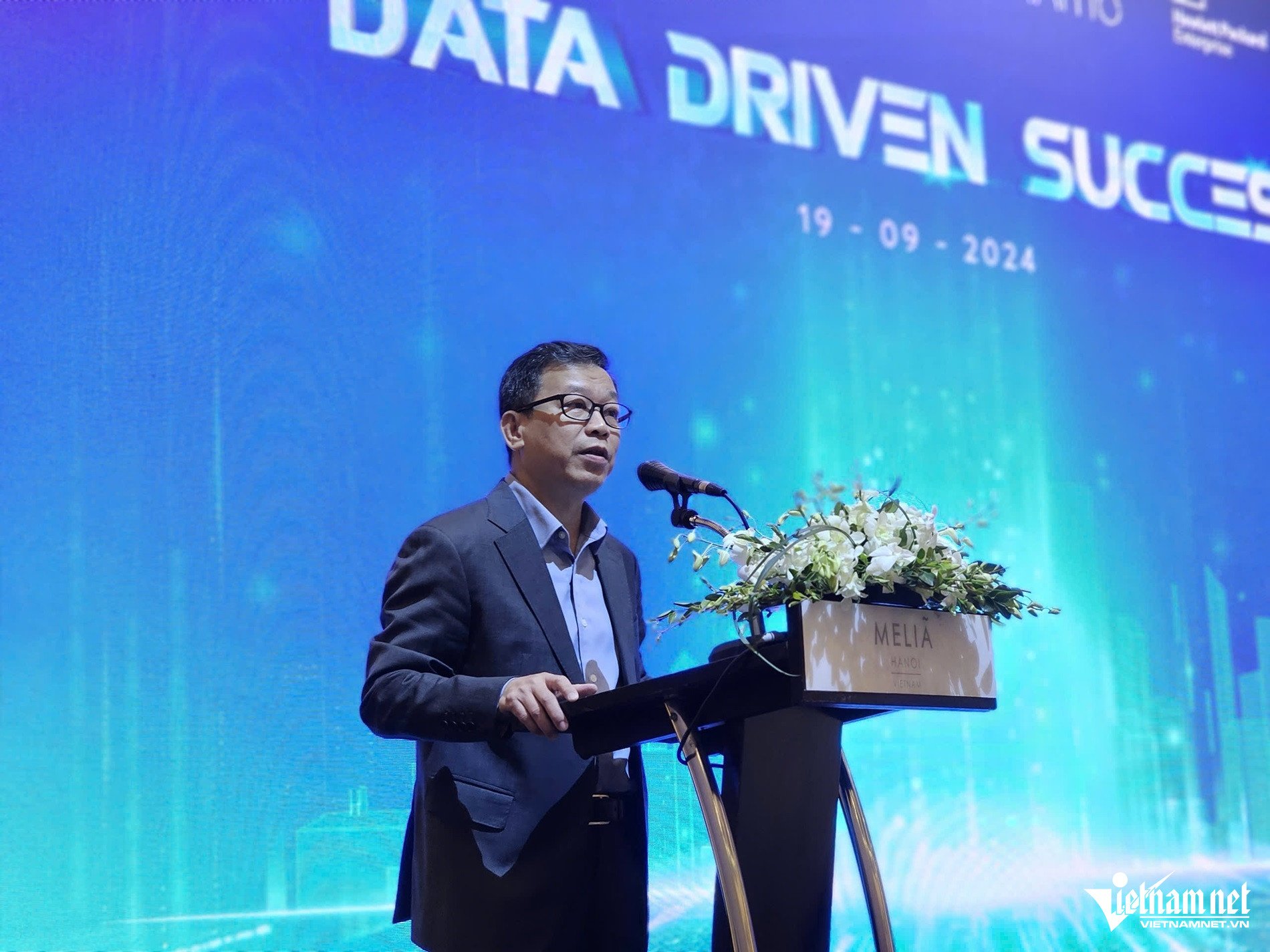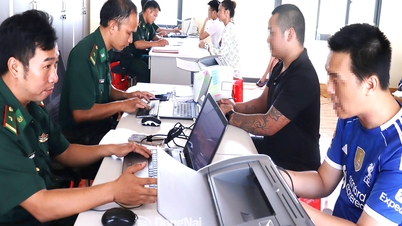Data management activities and application of data analysis technology are not new to organizations in the banking sector.
According to Mr. Nguyen Thanh Son, Director of the Training Center, Vietnam Banking Association (VNBA), since 2017, VNBA has organized many seminars and training programs for member units. If at that time, most of them were just interested and only a few were researching and finding ways to apply technology in business activities, decision making, and risk management, now, after 5-6 years, everything has changed.
Sharing at the workshop "Leveraging data for success" on September 19 in Hanoi , Mr. Nguyen Thanh Son said that many banks have been applying new technology in fraud prevention and payment activities in the digital ecosystem, including data management applications.
With the great advantage of holding a huge data warehouse, if knowing how to take advantage, banks will increase competitive advantage, enhance brand, and minimize risks.

However, to exploit this asset, data must first be controlled and processed, or in other words, governed, effectively.
According to the VNBA representative, large banks have issued data strategies, with governance frameworks, boards of directors, staff and specialized units, along with policies regulating the roles of stakeholders, establishing strategies for each stage, and implementing them systematically. Meanwhile, smaller banks implement data strategies at a lower level.
Ms. Dinh Hong Hanh, Deputy General Director, Financial Advisory Services Leader, PwC Vietnam, commented that the benefits gained from data all come from data management. Only good, sustainable, and safe management tools can effectively exploit data.
Another benefit of effective data governance for banks is that it helps them adapt and comply with ever-changing regulations and legal requirements globally.
In Southeast Asia, financial institutions are increasingly maturing their data governance due to pressure from regulatory requirements, as well as digital transformation drivers and the need to manage cross-border data.
Applying technology helps banks make breakthroughs
In the banking sector, the application of new technologies such as GenAI and machine learning helps to bring breakthrough solutions through understanding customer preferences and behaviors. Meanwhile, Big Data analysis provides personalized services, recommends suitable products, meets individual financial goals, thereby improving customer satisfaction and engagement with the bank.
In addition, GenAI's learning ability helps automate complex processes, minimize errors, save time in operations, and provide strong risk management. GenAI and new technologies help manage risks better by understanding abnormal behavior patterns, thereby preventing fraudulent behavior.
GenAI, through historical data analysis, forecasts market trends, makes smarter and more accurate decisions, opens up opportunities to develop new products and services, and responds to rapid market changes.
According to research by the McKinsey Institute, AI in general and GenAI in particular can contribute up to 340 billion USD through increased productivity. According to Statista, the banking industry's investment in GenAI is expected to reach 85 billion USD by 2030.
Banks are using GenAI for activities such as: Summarization, deep information retrieval, transformation/translation, expansion/enhancement of existing content, Q&A, creation of new content.
However, as AI is increasingly applied in operations, the amount of data and models created will increase, causing risks to cybersecurity, privacy, operations, legality, and compliance. Therefore, it requires responsible AI application to minimize potential risks.
Source: https://vietnamnet.vn/muon-but-pha-ngan-hang-phai-quan-tri-du-lieu-hieu-qua-2323829.html



![[Photo] Unique art of painting Tuong masks](https://vphoto.vietnam.vn/thumb/1200x675/vietnam/resource/IMAGE/2025/11/14/1763094089301_ndo_br_1-jpg.webp)
![[Photo] Unique architecture of the deepest metro station in France](https://vphoto.vietnam.vn/thumb/1200x675/vietnam/resource/IMAGE/2025/11/14/1763107592365_ga-sau-nhat-nuoc-phap-duy-1-6403-jpg.webp)

































![[Photo] Special class in Tra Linh](https://vphoto.vietnam.vn/thumb/1200x675/vietnam/resource/IMAGE/2025/11/14/1763078485441_ndo_br_lop-hoc-7-jpg.webp)






































































Comment (0)